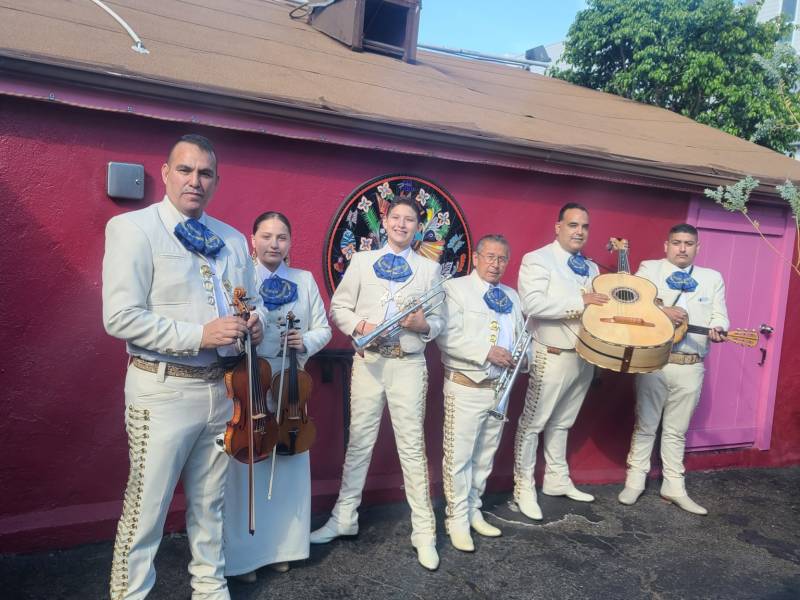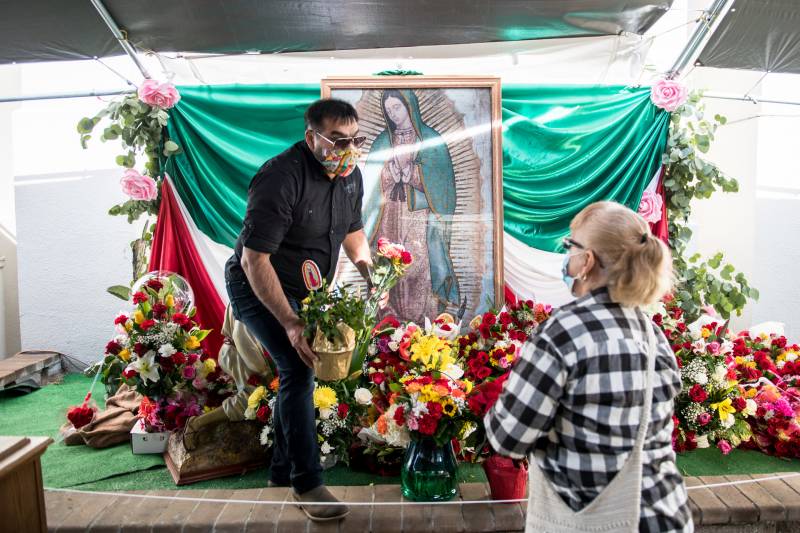Hundreds of mariachis come to Boyle Heights in Los Angeles from across the United States and Mexico in search of work. They gather at Mariachi Plaza, a small park with a bandstand and kiosk that holds a special place in their hearts because it was donated by the Mexican state of Jalisco, the birthplace of this music. They wait for people to call or stop by to hire them.
But the pandemic hit mariachi bands brutally. Most work dried up as events were canceled through the spring and summer of 2020.
Some musicians performed at gatherings that defied California’s shelter-in-place rules and social distancing protocols. Without any other source of income, musicians felt they had no choice but to accept jobs even at the risk of coronavirus exposure.
More than 50 mariachi musicians have died of COVID-19 over the past year, said Israel Moreno, president of the Organization of Independent Mariachis of California (OMICAL) in Boyle Heights.


